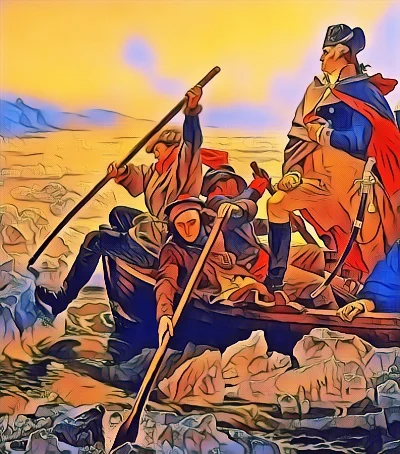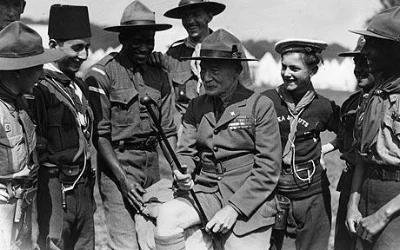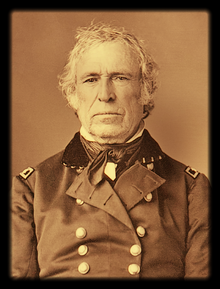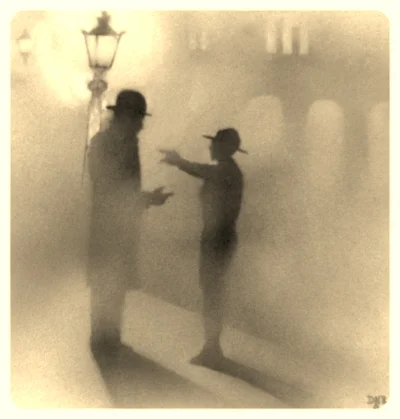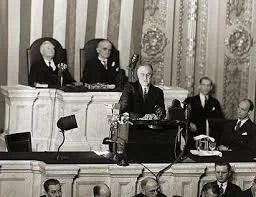
“As you find an idea that suits your needs, I hope that you do not read it to your boys. Take the idea and express it in your own words.”
— Veteran Scouter Victor Reinholz - 1958
2019-01 Good Wood
Your character is the material you’re using to build your life. Twenty years from now, you will begin to see the product you are building.
Have you ever tried t hammer in a bent nail? Even if you straighten it out before you try to reuse it, the nail still bends very easily. Only a new, straight nail will provide the best results. A carpenter beginning a new project always starts with the best materials he can find - nails, tools, and wood. In the hands of a skilled carpenter, these materials will be used to create a beautiful table or a cabinet. Remember the lesson from the carpenter; nothing beautiful can be carved from a rotten piece of wood.
Your character is the material you’re using to build your life. Twenty years from now, you will begin to see the product you are building. The question to ask yourself is this: “Is the wood you’re using now good wood or rotten wood?”
The Scoutmaster Minute - Ron Wendel
2019-00 A Scout Is Trustworthy
An architect who had just finished college was trying to get his business established and was having a hard time doing it. He still owed money for some of his college expenses and saw his debts piling up. Each day he became more and more worried, and was looking around desperately for a solution…
An architect who had just finished college was trying to get his business established and was having a hard time doing it. He still owed money for some of his college expenses and saw his debts piling up. Each day he became more and more worried, and was looking around desperately for a solution.
Then a wealthy man, who had been a good friend of his father, came to him one day. "I want you to build me a house," he said. "Build it of the finest materials. Spare no expense. Build it as if it were for yourself and you had all the money in the world. Here is an advance on your fee. I ll be gone for months, so take full charge."
It was like a dream to the young architect. With the advance, he wiped out all his debts, and he knew that he could be married soon. For when the house was finished, he could expect other good commissions. Then his reputation would be established solidly. So he set to work with great joy.
As the building progressed, the architect was struck with an idea. The owner would not be back for months. No one was keeping check on the building. He could build the house just as he pleased. So he began to use second-rate materials where they wouldn't show. As he went on this way, he figured he would make an extra ten thousand dollars for himself, because, of course, he would charge the owner for the best materials throughout.
Well, the house finally was finished and the owner came back. The man was pleased. "It's beautiful," he said. "But, unfortunately I will never live in it. While I was traveling, I made some investments in Europe that will keep me there perhaps permanently. And I want you to have this house as a wedding present. It's so beautiful! It's a true picture of your own character, true and loyal all the way through!
Imagine how the young architect felt! Yes, the house was a picture of his own character, and would be there to remind him of his cheating for as long as he lived.
Taking The First Step
If you are to progress in Scouting or in life, you must first face your goal and then get started with that all-important first step.
This Scoutmaster's minute involves using 4 other Scouts (if your troop is large enough, use 4 patrol leaders).
(Patrol leaders stand in a diagonal line at one side facing the troop- Scoutmaster on the other side - half facing troop and patrol leaders.)
Scoutmaster: Pete, how would you start on a hike? (Pete takes one step forward.)
Scoutmaster: Bill, how would you set out to do a Good Turn? (Bill takes one step forward.)
Scoutmaster: Jim, how would you get started on a camping trip? (Jim takes one step forward.)
Scoutmaster: Joe, how would you start out to achieve First Class? (Joe takes one step forward.)
Scoutmaster: Yes, it's as simple as that - to make a thousand mile journey, to run a race, to learn a trade, to meet new people, to climb a mountain, to create a masterpiece, to build a skyscraper, to design a jet engine, to do anything worth while there is always a first step, and it is the most difficult one to take.
If you are to progress in Scouting or in life, you must first face your goal and then get started with that all-important first step.
Found in the 1958 pamphlet, The Scoutmaster's Minute.
A Leader Leads
A general was in trouble. He was facing an enemy army that was bigger and better equipped. Moreover, he needed food, equipment, and supplies and had no money to buy them.
A general was in trouble. He was facing an enemy army that was bigger and better equipped. Moreover, he needed food, equipment, and supplies and had no money to buy them.
It was winter and the river between him and the enemy was so full of ice that everyone knew it could not be crossed. The general did not know this, so he put his men in small boats, crossed the river, and surprised the enemy - captured a thousand and put the rest to flight.
The general's name was George Washington.
Many men still wait until the ice is out of the river... or business is better... or conditions improve.
Today, as in 1776, the way to win is not to wait for the ice to go, but to cross the river and attack.
Found in the 1958 "The Scoutmaster's Minute"
Pearls of Wisdom - Quotes from Baden - Powell
A collection of Quotes from the founder of Scouting.
"We Must change boys from a 'what can I get' to a 'what can I give' attitude"
"The code of the knight is still the code of the gentleman today"
"The real way to gain happiness is to give it to others"
"In Scouting you are combating the brooding of selfishness"
"Scoutmasters deal with the individual boy rather than with the mass"
"A boy on joining wants to begin Scouting right away"
"A fisherman does not bait his hook with food he likes. He uses food the fish likes. So with boys."
"Scouting is a man's job cut don to a boy's size."
"Scouting is a game for boys under the leadership of boys under the direction of a man."
"Where is there a boy to whom the call of the wild and the open road does not appeal?"
"It is important to arrange games and competition so that all Scouts of the troop take part."
"We are not a club or a Sunday school class, but a school of the woods."
"Fun, fighting, and feeding! These are the three indispensable elements of the boy's world."
"Scoutmasters need to enter into boy's ambitions."
"A boy is supremely confident of his own power, and dislikes being treated as a child."
"Boys can see adventure in a dirty old duck puddle, and if the Scoutmaster is a boys' man he can see it, too."
"The spirit is there in every boy, it has to be discovered."
"Teach Scouts not how to get a living, but how to live."
"Can we not interpret our adult wisdom into the language of boyhood?"
"It is only when you know a boy's environment what you can know what influences to bring to bear."
"It's the spirit within, not the veneer without, that makes a man."
"It is risky to order a boy not to do something; it immediately opens to him the adventure of doing it."
"You can only get discipline in the mass by discipline in the individual."
"The Scoutmaster must be alert to check badge hunting as compared to badge earning."
"The Scout Oath and Law are our binding disciplinary force."
"A week of camp life is worth six months of theoretical teaching in the meeting room."
"A boy is not a sitting-down animal."
"Vigorous Scout games are the best form of physical education because most of them bring in moral education."
"A boy is naturally full of humor."
"An invaluable step in character training is to put responsibility on the individual."
"When a boy finds someone who takes an interest in him, he responds and follows."
"The sport of Scouting is to find the good in every boy and develop it."
"Success in training the boy depends largely on the Scoutmaster's own personal example."
"Correcting bad habits cannot be done by forbidding or punishment."
"Show me a poorly uniformed troop and I'll show you a poorly uniformed leader."
"The more responsibility the Scoutmaster gives his patrol leaders, the more they will respond."
"It should be the thing never mention unfairness of judging when defeated in a contest."
"The Scoutmaster teaches boys to play the game by doing so himself."
"O God, help me to win, but in thy wisdom if thou willest me not to win, then O God, make me a good loser."
"In Scouting, a boy is encouraged to educate himself instead of being instructed."
"There is no teaching to compare with example."
"We do not want to make Scout training too soft."
"The Good Turn will educate the boy out of the groove of selfishness."
"When you want a thing done, "Don't do it yourself is a good motto for Scoutmasters."
"Loyalty is a feature in a boy's character that inspires boundless hope."
"See things from the boy's point of view."
"The boy is not governed by don't, but is led by do."
"The object of the patrol method is not ao much saving the Scoutmaster trouble as to give responsibility to the boy."
"The most important object in Boy Scout training is to educate, not instruct."
"Scoutmasters need the capacity to enjoy the out-of-doors."
"If you make listening and observation you occupation you will gain much more than you can by talk."
"A boy carries out suggestions more wholeheartedly when he understands their aim."
"The Scoutmaster guides the boy in the spirit of an older brother."
"To get a hold on boys you must be their friend."
Don't Try, But Do
There is a good story about General Taylor, who became famous during the Mexican war. The victory was in the balance, and a certain battery was turning the scale against the Republic.
There is a good story about General Taylor, who became famous during the Mexican-American war during the 1840's. The victory was in the balance, and a certain battery was turning the scale against the Republic. General Taylor called the cavalry commander and said, "Take that battery!" The officer answered, "We will try, sir" "I don't want you to try, sir; I want you to take it." snarled the general. "We will take it, or die!" replied the young officer. "I don't want you to die," bellowed the general. "I want you to take that battery." There is a lesson there. The business world is looking for men of action - not the martyrs or experimenters, but for men who crystallize thought into action - for men who bring things to pass.
Some of you may be thinking to yourself... this phrase sounds familiar from somewhere else. In Episode V, The Empire Strikes Back, Master Yoda has some of the same advise for young Luke.
Which One Do You Feed
Grandfather said, "Come, sit, tell me what has happened today."
There once was an old Indian. His little grandson often came in the evenings to sit at his knee and ask the many questions that children ask. One day the grandson came to his grandfather with a look of anger on his face.
Grandfather said, "Come, sit, tell me what has happened today."
The child sat and leaned his chin on his Grandfather's knee. Looking up into the wrinkled, nut brown face and the kind dark eyes, the child's anger turned to quiet tears.
The boy said, "I went to the town today with my father, to trade the furs he has collected over the past several months. I was happy to go, because father said that since I had helped him with the trapping, I could get something for me. Something that I wanted.
I was so excited to be in the trading post. I have not been there before. I looked at many things and finally found a metal knife! It was small, but good size for me, so father got it for me."
Here the boy laid his head against his grandfather's knee and became silent. The Grandfather, softly placed his hand on the boys raven hair and said, "And then what happened?". Without lifting his head, the boy said, "I went outside to wait for father, and to admire my new knife in the sunlight. Some town boys came by and saw me, they got all around me and starting saying bad things.
They called me dirty and stupid and said that I should not have such a fine knife. The largest of these boys, pushed me back and I fell over one of the other boys. I dropped my knife and one of them snatched it up and they all ran away, laughing."
Here the boy's anger returned, "I hate them, I hate them all!"
The Grandfather, with eyes that had seen too much, lifted his grandson's face so his eyes looked into the boy's. Grandfather said, "Let me tell you a story."
"I too, at times, have felt a great hate for those that have taken so much, with no sorrow for what they do.
But hate wears you down, and does not hurt your enemy. It is like taking poison and wishing your enemy would die. I have struggled with these feelings many times. It is as if there are two wolves inside me, one is white and one is black. The White Wolf is good and does no harm. He lives in harmony with all around him and does not take offense when no offense was intended. He will only fight when it is right to do so, and in the right way.
But the Black Wolf is full of anger. The littlest thing will set him into a fit of temper. He fights everyone, all the time, for no reason. He cannot think because his anger and hate are so great. It is helpless anger, for his anger will change nothing. Sometimes it is hard to live with these two wolves inside me, for both of them seek to dominate my spirit."
The boy, looked intently into his Grandfather's eyes, and asked, "Which one wins Grandfather?"
The Grandfather, smiled and said, "The one I feed."
Origin unknown. As told to Tèmakamoxkomëhèt by his friend Asuwibi'oxkwe.
Tale of the Unknown Scout
Scouting was brought to America by William D. Boyce, a Chicago publisher, and the way Boyce discovered Scouting is one of the movement’s most colorful stories.
Scouting was brought to America by William D. Boyce, a Chicago publisher, and the way Boyce discovered Scouting is one of the movement’s most colorful stories. Boyce, it seems, was in London in the fall of 1909 and was out in a famed London fog looking for an office in the center of the city. Nearly at his wit’s end, Boyce stopped a young man and asked directions. Not only did the youth tell Boyce how to reach his destination, he actually led Boyce there to make certain the American found his way without becoming lost again. Boyce, to show his gratitude, offered the youth a tip, but the youth would not accept it. When asked why, the young man told Boyce he was a Boy Scout and taking a tip would negate the good deed he had done and violate his Scouting code.
The youth’s gesture impressed Boyce, who later visited with Lord Baden-Powell himself. Boyce was so taken with Baden-Powell and the Scouting idea that back in America he and other men interested in youth development founded the Boy Scouts of America in Washington, D.C., on February 8th, 1910. No one knows who the Scout was who performed his Good Turn for Boyce, but he has not been forgotten. In Gilwell Park in London, American Scouts had a statue erected in his honor. A large-scale representation of the Silver Buffalo Award, the statue bears the inscription, “To the Unknown Scout Whose Faithfulness in the Performance of the Daily Good Turn Brought the Scout Movement to the United States of America.”
Founders of the BSA
Boy Scouts of America is 108 years old today! Meet the Founders.
Today marks the 108th anniversary of the Boy Scouts of America. Below are the individuals who played a key role in establishing this great program.
Robert S. S. Baden-Powell
As a youth, Robert Baden-Powell greatly enjoyed the outdoors, learning about nature and
how to live in the wilderness. After returning as a military hero from service in Africa, BadenPowell
discovered that English boys were reading the manual on stalking and survival in the
wilderness he had written for his military regiment. Gathering ideas from Ernest Thompson
Seton, Daniel Carter Beard, and others, he rewrote the manual as a nonmilitary nature skill
book and called it Scouting for Boys. To test his ideas, Baden-Powell brought together 22 boys
to camp at Brownsea Island, off the coast of England. This historic campout was a success
and resulted in the advent of Scouting. Thus, the imagination and inspiration of Baden-Powell,
later proclaimed Chief Scout of the World, brought Scouting to youth the world over.
Ernest Thompson Seton
Born in Scotland, Ernest Thompson Seton immigrated to America as a youth in the 1880s.
His fascination with the wilderness led him to become a naturalist, an artist, and an
author, and through his works he influenced both youth and adults. Seton established a
youth organization called the Woodcraft Indians, and his background of outdoor skills
and interest in youth made him a logical choice for the position of first Chief Scout of the
BSA in 1910. His many volumes of Scoutcraft became an integral part of Scouting, and his
intelligence and enthusiasm helped turn an idea into reality
Daniel Carter Beard
Woodsman, illustrator, and naturalist, Daniel Carter Beard was a pioneering spirit of the
Boy Scouts of America. Already 60 years old when the Boy Scouts of America was formed,
he became a founder and merged it with his own boys’ organization, the Sons of Daniel
Boone. As the first national Scout commissioner, Beard helped design the original Scout
uniform and introduced the elements of the First Class Scout badge. ‘‘Uncle Dan,’’ as he
was known to boys and leaders, will be remembered as a colorful figure dressed in
buckskin who helped form Scouting in the United States.
William D. Boyce
In 1909, Chicago publisher William D. Boyce lost his way in a dense London fog. A boy
came to his aid and, after guiding the man, refused a tip, explaining that as a Scout he
would not take a tip for doing a Good Turn. This gesture by an unknown Scout inspired
a meeting with Robert Baden-Powell, the British founder of the Boy Scouts. As a result,
William Boyce incorporated the Boy Scouts of America on February 8, 1910. He also
created the Lone Scouts, which merged with the Boy Scouts of America in 1924.
James E. West
James E. West was appointed the first Chief Scout Executive of the Boy Scouts of America in
1911. Although orphaned and physically handicapped, he had the perseverance to graduate
from law school and become a successful attorney. This same determination provided the
impetus to help build Scouting into the largest and most effective youth organization in
the world. When he retired in 1943, Dr. West was recognized throughout the country as
the true architect of the Boy Scouts of America.
Finding Your Way
Scouts, where did the design for the Scout badge come from?
Scouts, where did the design for the Scout badge come from? Did you know that it's from the north point of the mariners' compass? Now why did Lord Baden-Powell, the founder of Scouting, select that symbol for the first Scout badge? In his book, Scouting for Boys, Baden- Powell told us. He said, "It is the badge of the Scout because it points in the right direction, and upwards. It shows the way in doing your duty and helping others. "
In other words, just as the north point of the compass helps us find our way in the field, so the Scout badge helps us find our way through life. So the shape of our Scout badge should be a constant reminder to us of the things we pledge when we say the Scout Oath or Law. Let's think about that badge and what it means the next time we're tempted to do something we know is wrong.
On The Trail
Once a long time ago a hound was out with his owner trailing a mountain lion. The hound came to a place where a fox had crossed the trail, and the hound decided to follow the fox instead of the lion...
Once a long time ago a hound was out with his owner trailing a mountain lion. The hound came to a place where a fox had crossed the trail, and the hound decided to follow the fox instead of the lion.
A short time later, a rabbit crossed that of the fox, and again the hound changed direction. Why should he chase a fox when a rabbit might be easier to catch?
When the hunter finally caught up with his hound, the dog was barking at a small hole in the ground. The hound had brought to bay a field mouse instead of a mountain lion.
Well, how about you? Have you set out on a trail to achieve your ambition? Are you able to follow it, or are you sidetracked by easier trails that cross it from time to time?
Don't be like that hound. Find out what it takes to achieve your ambition, and then get started. The best way to achieve anything in life is to set a true course for it and then stick to that trail.
Thank you to Troop 174 in Elwood, NY for posting this wonderful Scoutmaster's minute. http://bsatroop174.org/A_Scoutmaster.html
The Four Freedoms
In the future days which we seek to make secure, we look forward to a world founded upon four essential human freedoms...
Message to Congress - January 6, 1941
In the future days which we seek to make secure, we look forward to a world founded upon four essential human freedoms.
The first is freedom of speech and expression - everywhere in the world.
The second is freedom of every person to worship God in his own way - everywhere in the world.
The third is freedom from want - which translated into world terms means economic understanding which will secure to to every nation a healthy peacetime life for its inhabitants everywhere in the world.
The fourth is freedom from fear - which translated into world terms means a worldwide reduction of armaments to such a point and in such a thorough fashion that no nation will be in a position to commit an act of physical aggression against any neighbor - anywhere.
- Franklin D. Roosevelt






